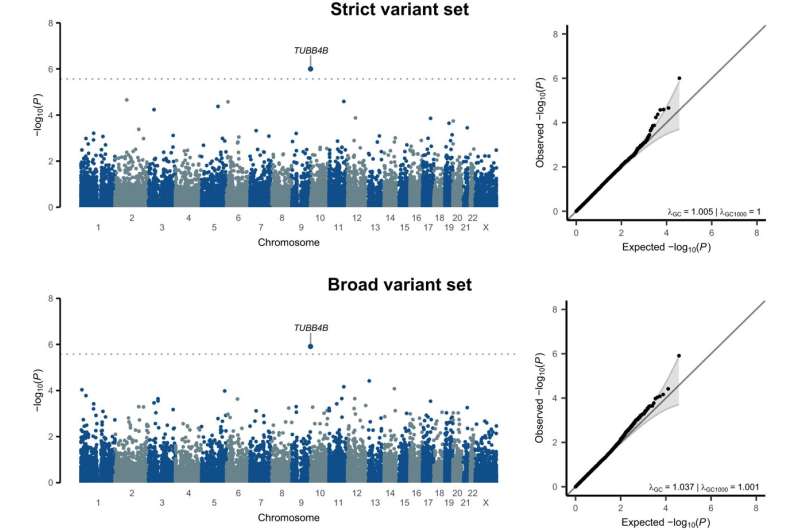April 3, 2024 report
This article has been reviewed according to Science X's editorial process and policies. Editors have highlighted the following attributes while ensuring the content's credibility:
fact-checked
peer-reviewed publication
trusted source
proofread
Researchers find genetic variant coding for tubulin protein that may be partially responsible for left-handedness

A team of geneticists at the Max Planck Institute for Psycholinguistics, in The Netherlands, has found a genetic variant that codes for a tubulin protein that may be partially responsible for left-handedness in humans. In their study, published in the journal Nature Communications, the group analyzed genetic data from hundreds of thousands of people who have medical profiles in the UK Biobank.
Prior research has shown that approximately 10% of people are left-handed and until recently, the reason has been a mystery. Several years ago, researchers determined that left-handed people have right-brain hemisphere dominance, while everyone else has left-brain hemisphere dominance.
Then, in 2019, a team of genetics researchers found evidence that there are four genetic regions involved in handedness; the following year, another team found 41 gene variants that could be linked to left-handedness. Together, these findings suggest that like some other human characteristics, handedness is due to a combination of factors that are influenced by a myriad of genes.
In this new study, the researchers found a genetic variant that results in differences in tubulin protein production between people who are left- or right-handed.
To learn more about the underlying cause of left-handedness, the research team analyzed genetic data from 313,271 right-handed people and 38,043 left-handed people in the Biobank, looking for differences between the two. They found that left-handed people in the database are 2.7 times as likely to have a rare genetic variant that encodes for a tubulin protein involved in the creation of microtubules—parts of the cytoskeleton that give cells their physical shape.
Prior research has suggested a link between microtubules and hemisphere dominance. And other research has shown that microtubules are also heavily involved in the development of neurons.
The researchers acknowledge that it is still not clear how microtubule development might lead to left-handedness, though they note that previous findings suggest they may be associated with cellular chirality, which in turn may be associated with hemisphere dominance.
More information: Dick Schijven et al, Exome-wide analysis implicates rare protein-altering variants in human handedness, Nature Communications (2024). DOI: 10.1038/s41467-024-46277-w
© 2024 Science X Network




















